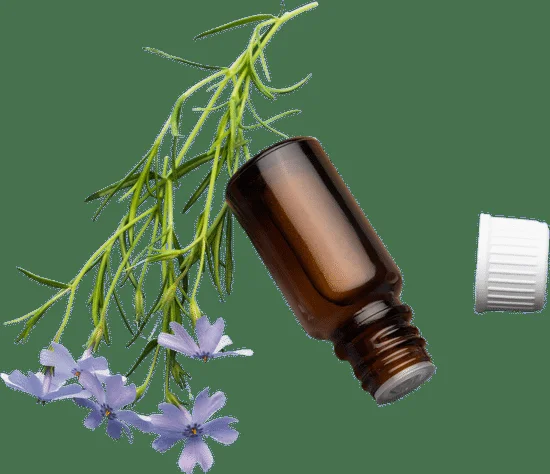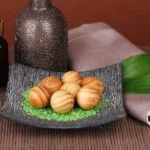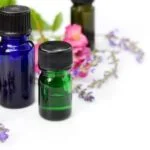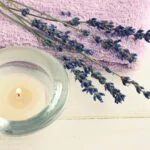Aromatherapy, the therapeutic use of essential oils derived from plants, has gained increasing popularity in recent years as a natural remedy for various health conditions. One such condition is anxiety, a mental health disorder that affects millions of individuals worldwide. In this article, we will explore the potential benefits of aromatherapy for anxiety and delve into its efficacy based on scientific research and studies.
Anxiety is a complex mental health disorder characterized by persistent worry and fear about everyday situations. It can significantly impact a person’s overall well-being and quality of life. While there are various treatment options available, some individuals seek alternative therapies like aromatherapy to manage their anxiety symptoms.
Aromatherapy involves the use of essential oils, which are highly concentrated extracts from plants that retain their natural scent and properties. These oils can be inhaled or applied topically to stimulate the senses and promote relaxation. Many people believe that certain essential oils have calming effects on the mind and body, making them potentially beneficial for anxiety relief.
Throughout this article, we will explore the science behind aromatherapy and how it interacts with the brain to potentially alleviate anxiety symptoms. We will also examine popular essential oils known for their anxiety-reducing properties, such as lavender, bergamot, and chamomile. Furthermore, we will discuss the research and studies conducted to gauge the efficacy of aromatherapy as an alternative treatment option for anxiety.
As we delve deeper into this topic, it is important to note that while there is evidence supporting the benefits of aromatherapy for anxiety relief, further research is needed to fully understand its mechanisms and effectiveness. Nevertheless, many individuals have reported finding relief through aromatherapy techniques such as diffusion, massage, and bathing.
In subsequent sections of this article, we will explore safety precautions when using aromatherapy for anxiety management and how it can be integrated alongside other treatment modalities to enhance its effectiveness. Additionally, we will share personal testimonials from individuals who have found relief through aromatherapy, offering real stories of hope and inspiration.
By the end of this article, readers will gain a comprehensive understanding of aromatherapy’s potential benefits for anxiety and be equipped with knowledge to make informed decisions about incorporating it into their own anxiety management strategies.
Understanding Anxiety
Anxiety is a common mental health condition that affects millions of individuals worldwide. It is characterized by persistent feelings of worry, fear, and unease, often accompanied by physical symptoms such as rapid heart rate and shallow breathing.
The impact of anxiety on mental health can be profound, leading to difficulties in daily functioning, sleep disturbances, and even physical health issues. In order to fully understand the potential benefits of aromatherapy for anxiety, it’s essential to explore how anxiety impacts mental health and overall well-being.
One of the key ways anxiety affects mental health is through the disruption of neurotransmitter levels in the brain. Neurotransmitters are chemical messengers that facilitate communication between brain cells. Imbalances in neurotransmitter levels, particularly serotonin and GABA (gamma-aminobutyric acid), are commonly seen in individuals with anxiety disorders. These imbalances can lead to heightened feelings of anxiety and an inability to regulate emotions effectively.
In addition to neurotransmitter imbalances, anxiety also activates the body’s stress response system, known as the fight-or-flight response. This leads to an increase in stress hormones like cortisol and adrenaline. Prolonged activation of this stress response system can have detrimental effects on both mental and physical health. Chronic anxiety has been linked to an increased risk of developing cardiovascular diseases, gastrointestinal problems, and weakened immune function.
The Role Aromatherapy Can Play
Aromatherapy offers a potential solution for managing anxiety by targeting these underlying mechanisms. Essential oils used in aromatherapy contain potent bioactive compounds that have been shown to interact with the brain and nervous system. When inhaled or applied topically, these components can have a direct effect on neurotransmitters and help promote relaxation.
Several studies have investigated the effects of specific essential oils on relieving symptoms of anxiety. Lavender oil has consistently shown promise in reducing feelings of anxiousness and promoting calmness when used through methods like inhalation or massage. Bergamot oil has also been found to have anxiolytic (anti-anxiety) properties and may help regulate stress hormone levels. Chamomile oil is known for its soothing properties and can be particularly beneficial for anxiety related to sleep disturbances.
While aromatherapy alone may not be a comprehensive treatment for anxiety, it can be a valuable complementary therapy that supports overall well-being. The next section will delve into the scientific basis behind how essential oils interact with the brain to provide anxiety relief, shedding light on how aromatherapy can be an effective tool in managing this common mental health condition.
The Science Behind Aromatherapy
Aromatherapy has been used for centuries as a natural remedy for various ailments, including anxiety. While it may seem like a simple practice, there is actually fascinating science behind how essential oils interact with the brain to provide relief from anxiety symptoms.
Essential oils are highly concentrated plant extracts that contain volatile aromatic compounds. These compounds are responsible for the distinct scent of each essential oil and play a crucial role in their therapeutic effects. When inhaled or applied topically, these compounds can interact with the olfactory system and the limbic system in the brain.
The olfactory system is responsible for our sense of smell and is closely linked to memory and emotions. When we inhale essential oils, the aromatic compounds bind to olfactory receptors in our nasal cavity, sending signals to the limbic system. The limbic system is involved in regulating emotions, stress response, and memory formation.
Research has shown that certain essential oils can have a direct impact on neurotransmitters in the brain. For example, lavender essential oil has been found to increase levels of gamma-aminobutyric acid (GABA), which is a neurotransmitter that helps regulate anxiety and promote feelings of calmness. Other essential oils, such as bergamot and chamomile, have been shown to modulate serotonin levels, another neurotransmitter involved in mood regulation.
In addition to their direct effects on neurotransmitters, some essential oils also have anti-inflammatory properties that can help reduce inflammation and oxidative stress in the brain. Chronic inflammation and oxidative stress are believed to play a role in the development of mental health disorders such as anxiety.
Overall, while more research is needed to fully understand the mechanisms at play, there is scientific evidence supporting the notion that certain essential oils used in aromatherapy can interact with the brain to alleviate anxiety symptoms. By targeting neurotransmitters and reducing inflammation, these oils can help promote relaxation and reduce feelings of stress and anxiety.
Popular Essential Oils for Anxiety
Aromatherapy is a widely recognized practice that utilizes the therapeutic properties of essential oils derived from plants to promote physical and mental well-being. When it comes to anxiety, there are several essential oils that have gained popularity for their potential benefits in alleviating symptoms and promoting relaxation. Among these, lavender, bergamot, and chamomile stand out as some of the most commonly used essential oils for anxiety relief.
- Lavender: Known for its calming and soothing effects, lavender essential oil has long been used as a natural remedy for anxiety and stress. Its gentle floral scent can help reduce feelings of restlessness and promote relaxation. Research has shown that inhaling lavender oil can lead to a reduction in anxiety symptoms by affecting the brain’s limbic system, which plays a key role in regulating emotions.
- Bergamot: Derived from citrus fruits, bergamot essential oil is known for its uplifting and mood-enhancing properties. Its refreshing aroma can help relieve tension and promote a sense of calmness during times of anxiety. Some studies suggest that bergamot oil may have direct effects on the nervous system by increasing levels of serotonin and dopamine, neurotransmitters associated with feelings of happiness and well-being.
- Chamomile: Widely recognized for its calming effects, chamomile essential oil is often used to reduce anxiety symptoms and improve sleep quality. Its sweet apple-like fragrance induces relaxation and helps soothe nerves. Research suggests that chamomile contains compounds that bind to receptors in the brain responsible for reducing anxiety and promoting relaxation.
When using essential oils for anxiety relief, it’s important to note that individual responses may vary. Some people may find certain scents more effective than others in managing their symptoms. Additionally, it’s crucial to dilute the essential oils with carrier oils or water before applying them topically or diffusing them, as undiluted essential oils may cause skin irritation or other adverse reactions. It’s always advisable to conduct a patch test before using any new essential oil.
In summary, lavender, bergamot, and chamomile are popular choices for anxiety relief in aromatherapy. The calming and soothing properties of these essential oils make them effective options for promoting relaxation and reducing anxiety symptoms. They can be used in various aromatherapy techniques such as diffusion, massage, or bathing to create a peaceful atmosphere and support mental well-being.
Exploring the Efficacy of Aromatherapy for Anxiety
Aromatherapy has gained popularity as a potential complementary therapy for anxiety. Many individuals turn to aromatherapy to find relief from symptoms of anxiety, such as restlessness, nervousness, and tension. But does aromatherapy truly have an impact on anxiety? Researchers and studies have delved into this question to explore the efficacy of aromatherapy for anxiety.
Various research studies have been conducted to investigate the effects of essential oils on anxiety levels. In one study published in the Journal of Clinical Psychology, researchers found that participants who received lavender aroma inhalation experienced significantly reduced anxiety levels compared to a control group.
Another study published in the Journal of Alternative and Complementary Medicine examined the effects of bergamot essential oil massage on symptoms of anxiety in patients with chronic pain. The results showed a significant reduction in anxiety levels after the massage intervention.
These findings are supported by numerous other studies that have highlighted the potential benefits of aromatherapy for anxiety. However, it is important to note that while these studies provide promising results, more research is still needed to fully understand the long-term effects and mechanisms behind aromatherapy’s impact on anxiety.
Research Studies Supporting Aromatherapy for Anxiety
- In a randomized controlled trial published in Evidence-Based Complementary and Alternative Medicine, researchers found that chamomile inhalation significantly reduced symptoms of generalized anxiety disorder.
- A study published in the Journal of Advanced Medical Research demonstrated that a combination of lavender and bergamot essential oils reduced blood pressure and heart rate in individuals with mild-to-moderate anxiety.
- Another study published in the Journal of Ethnopharmacology investigated the anxiolytic effects of ylang-ylang essential oil inhalation and found that it significantly decreased stress responses in healthy volunteers.
While these research studies provide valuable insights into the effectiveness of aromatherapy for anxiety, it is essential to consider individual variations and preferences. What works for one person may not work for another, and it is important to consult with a healthcare professional or an aromatherapist to determine the most suitable essential oils and methods of application for anxiety relief.
Transitioning into the next section, we will delve into different aromatherapy techniques that can be employed to alleviate anxiety, such as diffusion, massage, and bathing.
Aromatherapy Techniques for Anxiety Relief
Aromatherapy offers various techniques that can be used to alleviate symptoms of anxiety. These techniques involve the use of essential oils, which can be administered through diffusion, massage, and bathing. Each method provides unique benefits and can be tailored to individual preferences and needs.
Diffusion
One popular technique for using essential oils in aromatherapy is diffusion. This involves dispersing the aroma of an essential oil into the air using a diffuser or a steam inhalation method. Diffusion allows the scent to be inhaled, which stimulates the olfactory system and triggers certain physiological responses in the brain.
Diffusing essential oils like lavender, bergamot, or chamomile has been found to promote relaxation and help reduce feelings of anxiety. Lavender oil is particularly known for its calming properties and has been shown to enhance mood and improve sleep quality. Bergamot oil has mood-boosting effects that can help alleviate symptoms of anxiety and depression. Chamomile oil is often used for its soothing properties, providing a sense of calmness and tranquility.
Massage
Another effective technique for utilizing aromatherapy for anxiety relief is through massage. Aromatherapy massage combines the benefits of touch therapy with the therapeutic effects of essential oils. During a massage session, diluted essential oils are applied topically along with gentle pressure on specific areas of the body.
The combination of aromatherapy and massage helps promote relaxation by reducing muscle tension, improving blood circulation, and releasing endorphins – natural painkillers and mood-enhancing chemicals in the brain. Massage sessions with essential oils such as lavender or chamomile have been shown to significantly reduce anxiety levels while enhancing overall well-being.
Bathing
Taking a warm bath infused with essential oils is another effective aromatherapy technique for anxiety relief. The warm water helps to relax muscles and the addition of essential oils can further enhance the calming effects.
Adding a few drops of lavender, bergamot, or chamomile essential oil to bathwater can help create a peaceful and soothing environment, providing relaxation and relief from anxiety symptoms. As the body absorbs the essential oils through the skin and inhalation, they work harmoniously to promote relaxation and a sense of well-being.
Incorporating these aromatherapy techniques into your self-care routine can provide a natural way to manage anxiety symptoms. Whether it’s by diffusing essential oils into the air, enjoying an aromatherapy massage, or indulging in a relaxing bath with scented oils, these techniques offer multiple benefits that contribute to mental and emotional well-being. It is important to find what works best for you and explore different essential oils to create a personalized approach that suits your preferences and needs.
Safety Precautions and Considerations when Using Aromatherapy for Anxiety
Aromatherapy is generally considered safe for most people when used properly. However, there are some safety precautions and considerations to keep in mind when using aromatherapy for anxiety.
First, it is important to remember that essential oils are highly concentrated substances and should never be ingested. Ingesting essential oils can be toxic and cause adverse reactions. They should only be used topically or inhaled through aromatherapy techniques.
When using essential oils topically, it is necessary to dilute them with a carrier oil such as jojoba, almond, or coconut oil. This helps prevent skin irritation or sensitization. Additionally, it is recommended to perform a patch test before applying the diluted essential oil to a larger area of skin to check for any allergic reactions.
It is also important to consider the individual’s sensitivity to certain smells. While some people may find certain scents calming and soothing, others may have negative reactions or allergies to specific essential oils. It is advisable to start with small amounts and gradually introduce different essential oils to see how an individual responds.
Moreover, pregnant women should exercise caution when using certain essential oils as some may not be safe during pregnancy. Essential oils containing high levels of camphor, such as rosemary or clary sage, should be avoided during pregnancy as they can potentially stimulate contractions.
Safety Precautions for Using Aromatherapy
| Precautions | Description |
|---|---|
| Avoiding ingestion of essential oils | Ingesting essential oils can be toxic and cause adverse reactions. Only use topically or inhale through aromatherapy techniques. |
| Diluting essential oils | Always dilute essential oils with carrier oil to prevent skin irritation or sensitization. Perform a patch test before applying to larger areas of skin. |
| Sensitivity to scents | Individuals may have different reactions or allergies to specific essential oils. Start with small amounts and gradually introduce new oils. |
| Pregnancy precautions | Avoid certain essential oils, like rosemary or clary sage, during pregnancy as they can potentially stimulate contractions. |
Integrating Aromatherapy with Other Anxiety Treatment Modalities
Aromatherapy is a complementary therapy that can be used alongside other treatment modalities to manage anxiety. Integrating aromatherapy with other anxiety treatment methods can enhance the overall effectiveness of the approach and provide individuals with a holistic means of addressing their symptoms.
One tip for integrating aromatherapy with other anxiety treatment modalities is to create a personalized aromatherapy routine. This involves selecting essential oils that are known for their calming and relaxing properties, such as lavender or chamomile, and incorporating them into one’s daily self-care routine. This could include diffusing essential oils in the home or office, using them during massages or baths, or even applying diluted oils topically as part of a self-massage ritual.
Another strategy for integrating aromatherapy with other anxiety treatment methods is to use it as a relaxation technique during therapy sessions. Many therapists and counselors incorporate essential oils into their practices by diffusing them in the therapy room or using them during guided mindfulness exercises. By incorporating aromatherapy into therapy sessions, individuals can potentially enhance the therapeutic experience and promote a greater sense of calm and relaxation.
It’s important to note that while aromatherapy can be a valuable tool in managing anxiety, it should not replace evidence-based treatments prescribed by healthcare professionals. Aromatherapy should be seen as an adjunctive therapy that can enhance existing treatment plans rather than as a standalone solution. It’s always advisable to consult with a qualified healthcare professional before introducing any new therapies or treatments into one’s anxiety management plan.
| Integrating Aromatherapy Techniques | Description |
|---|---|
| Create personalized aromatherapy routine | Select calming essential oils and incorporate them into daily self-care activities such as diffusing, massaging, or bathing |
| Use aromatherapy during therapy sessions | Diffuse essential oils or incorporate them into guided mindfulness exercises to enhance relaxation and therapeutic benefits |
Personal Testimonials
One of the most compelling aspects of aromatherapy is the personal testimonials from individuals who have found relief from anxiety through its use. These stories provide a glimpse into the potential power of aromatherapy and how it can positively impact mental health.
One individual, Sarah, shares her experience with using essential oils for anxiety. She explains that after struggling with chronic anxiety for years, she decided to give aromatherapy a try. She started by diffusing lavender oil in her bedroom at night and noticed an immediate calming effect.
Over time, she expanded her use of essential oils to include bergamot during stressful situations and chamomile before bed. Sarah explains that incorporating aromatherapy into her daily routine has significantly reduced her anxiety levels and helped her feel more grounded and centered.
Another testimonial comes from Mark, who discovered the benefits of aromatherapy through massage therapy. He sought out professional massages as a way to relax and found that when essential oils were incorporated into the massage session, he experienced even greater relaxation and stress relief. Mark says that the combination of touch and scent created a soothing environment for him, allowing him to let go of his anxiety and find peace within himself.
These personal testimonials highlight that while scientific research on aromatherapy for anxiety is still ongoing, many individuals have found significant relief through its use. It is important to note that every person’s experience with aromatherapy may vary, but these stories offer hope and encouragement for those seeking natural methods to manage their anxiety symptoms.
Conclusion
In conclusion, aromatherapy has shown potential benefits for anxiety. By understanding the impact of anxiety on mental health and the science behind how essential oils interact with the brain, we can begin to appreciate how aromatherapy can be an effective tool in managing anxiety. Research and studies have explored the efficacy of various popular essential oils such as lavender, bergamot, and chamomile in reducing anxiety symptoms.
Aromatherapy techniques like diffusion, massage, and bathing offer different ways to experience the benefits of essential oils. These techniques allow individuals to customize their approach based on their preferences and needs. However, it is important to take safety precautions when using aromatherapy for anxiety. Diluting essential oils properly, using them in well-ventilated areas, and avoiding skin irritation are key considerations.
Integrating aromatherapy with other anxiety treatment modalities can enhance its effectiveness. Combining aromatherapy with techniques such as cognitive-behavioral therapy or medication may provide a more comprehensive approach to managing anxiety symptoms. Personal testimonials also highlight the positive impact that aromatherapy has had on individuals’ lives, providing a potential alternative or complement to traditional treatments.
Overall, while more research is needed on the topic, aromatherapy holds promise as a natural and accessible method for alleviating anxiety symptoms. By utilizing essential oils in a safe and informed manner, individuals may find relief from their anxious thoughts and feelings. Whether used alone or in conjunction with other treatments, aromatherapy offers a holistic approach to supporting mental well-being.
Frequently Asked Questions
Which aromatherapy oils are good for anxiety?
Several aromatherapy oils have been found to be beneficial for anxiety relief. Lavender oil is one of the most popular options and has been shown to reduce anxiety symptoms by promoting relaxation and calmness. Research has also suggested that bergamot oil may help alleviate anxiety due to its mood-enhancing properties.
Additionally, chamomile oil is known for its calming effects on the nervous system and can aid in reducing feelings of anxiety and stress. Ylang-ylang oil, with its soothing and sedative properties, is another beneficial option for anxiety relief. Lastly, vetiver oil has been found to promote relaxation and tranquility, making it a great choice for managing anxiety.
What are 5 coping skills for anxiety?
Coping skills are essential tools that can help individuals manage their anxiety effectively. Five coping skills for anxiety include deep breathing exercises, where one breathes in slowly through their nose and exhales deeply through their mouth to activate the body’s relaxation response. Another helpful skill is practicing mindfulness or meditation, which involves staying present in the moment without judgment and focusing on the sensations experienced in the present.
Engaging in regular physical exercise is also an effective coping strategy as it releases endorphins which can elevate mood and reduce anxiety symptoms. Seeking support from others through talking to trusted friends, family members or professional therapists can provide a valuable outlet for expressing feelings of anxiety and gaining perspective on challenges faced. Lastly, learning relaxation techniques such as progressive muscle relaxation or guided imagery can significantly help relieve symptoms of anxiety.
Does aromatherapy stress relief really work?
Aromatherapy stress relief has been widely used as a complementary therapy to manage stress and promote relaxation. While individual experiences may vary, there is evidence suggesting that certain aromatherapy oils can indeed provide stress relief benefits. Inhaling certain scents activates brain areas involved in emotional processing, influencing moods and inducing a sense of calmness. For instance, lavender oil has demonstrated relaxing effects on the central nervous system by reducing heart rate and blood pressure.
Similarly, the use of chamomile oil has been associated with decreased anxiety levels and improved sleep quality. However, it is important to note that aromatherapy should not be considered a standalone treatment for stress and anxiety disorders. It can be a valuable addition to an overall stress management regimen but should not replace professional care or other evidence-based treatments. Each individual may respond differently to aromatherapy, so it’s advisable to consult with a healthcare professional before incorporating it into a stress relief routine.

Are you looking for a natural way to improve your health and wellbeing?
If so, aromatherapy may be the answer for you.





